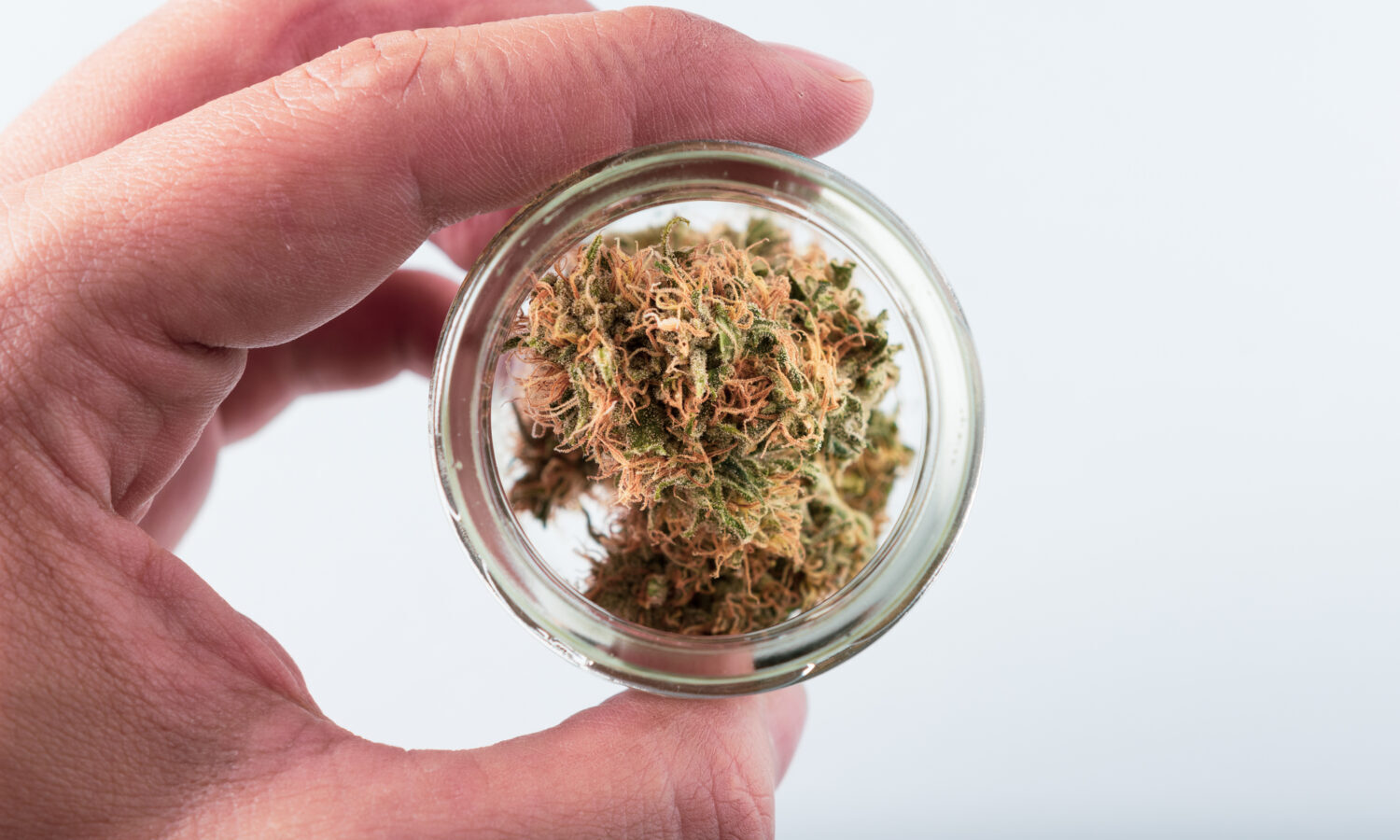Business
High Aspergillus Levels Found in Moldy Colorado Weed — Not Good for Transplant Patients

While most states agree that mycotoxin testing is necessary, the regulatory limits vary significantly from one state to another.
The Colorado Department of Revenue (DOR) together with the Colorado Department of Public Health and Environment (CDPHE) has issued a Health and Safety Advisory regarding unsafe cannabis from a Colorado-based dispensary, Living Rose Wellness. Over 200 batches of cannabis were tested and found to have unsafe levels of mold, yeast, and aspergillus and were therefore declared unsafe for human consumption.
The Colorado Springs based dispensary which is registered as SJD, LLC did not adhere to MED Rule series (4-100) standards when submitting the batches of marijuana for testing. When the batches were retested, it was found that the safe limit, for total yeast, mold, and aspergillus, according to Colorado Marijuana Rule 4-115, had been exceeded. Fungus thrive in environments that have a high moisture content. Properly cured cannabis should have a moisture content of about 10%-12% to deter fungus growth.

While most states agree that mycotoxin testing is necessary, the regulatory limits vary significantly from one state to another. States that test for aspergillus include Alaska, California, Michigan, Nevada, and New York. Labs need to use a testing method that is approved by the Association of Official Agricultural Chemists (AOAC® International).DOR has advised the public against consuming the moldy cannabis products from the affected dispensary. Consumers are to return the products to the dispensary for proper disposal, they also have the option of destroying the cannabis at home. DOR has also directed that any adverse effects associated with the consumption of the moldy cannabis should be reported to Marijuana Enforcement Division.
Marijuana Patients Denied Organ Transplant Due to Risk of Aspergillosis
In 2017, a patient in Maine was removed from the Maine organ transplant list because of previous marijuana use. This story was first highlighted by CNN. The Maine transplant program took this drastic step after two patients (with previous marijuana use) succumbed to aspergillosis after receiving a transplant. In a press release statement, the Maine Transplant program stated that the patients can be put back on the list once they were off marijuana.
The aspergillus is a saprophytic fungus that is frequently found in soil and helps to eliminate carbon and nitrogen from the atmosphere. Aspergillus spores, which are very tiny, are easily spread by strong air currents in a grow room. While aspergillus spores may not cause harm in healthy individuals, they are likely to cause aspergillosis in immuno-compromised patients. Those consuming immunosuppressants are also at a higher risk for developing aspergillosis. Aspergillosis can be fatal when it impairs breathing or causes bleeding in the lungs. The aspergillosis can quickly move from the lungs to the kidney, brain, and even heart.
A study that was published in 2016 demonstrated higher incidence of invasive aspergillosis after kidney transplant. The outcome of patients who developed aspergillosis after kidney transplant was also poor. A different study also showed that aspergillus infection is associated with higher morbidities and poorer outcomes after lung transplant.

Marijuana Use in Transplant Patients: Clarity Needed
A 2019 survey that was conducted by researchers in conjunction with the Executive Committee of the Infectious Diseases Community of Practice of the American Society of Transplantation sought clarity on marijuana use in transplant patients. The researchers observed a “discordance among transplant centers in their perceived risks of marijuana use as opposed to complications actually observed.”
Business
New Mexico cannabis operator fined, loses license for alleged BioTrack fraud

New Mexico regulators fined a cannabis operator nearly $300,000 and revoked its license after the company allegedly created fake reports in the state’s traceability software.
The New Mexico Cannabis Control Division (CCD) accused marijuana manufacturer and retailer Golden Roots of 11 violations, according to Albuquerque Business First.
Golden Roots operates the The Cannabis Revolution Dispensary.
The majority of the violations are related to the Albuquerque company’s improper use of BioTrack, which has been New Mexico’s track-and-trace vendor since 2015.
The CCD alleges Golden Roots reported marijuana production only two months after it had received its vertically integrated license, according to Albuquerque Business First.
Because cannabis takes longer than two months to be cultivated, the CCD was suspicious of the report.
After inspecting the company’s premises, the CCD alleged Golden Roots reported cultivation, transportation and sales in BioTrack but wasn’t able to provide officers who inspected the site evidence that the operator was cultivating cannabis.
In April, the CCD revoked Golden Roots’ license and issued a $10,000 fine, according to the news outlet.
The company requested a hearing, which the regulator scheduled for Sept. 1.
At the hearing, the CCD testified that the company’s dried-cannabis weights in BioTrack were suspicious because they didn’t seem to accurately reflect how much weight marijuana loses as it dries.
Company employees also poorly accounted for why they were making adjustments in the system of up to 24 pounds of cannabis, making comments such as “bad” or “mistake” in the software, Albuquerque Business First reported.
Golden Roots was fined $298,972.05 – the amount regulators allege the company made selling products that weren’t properly accounted for in BioTrack.
The CCD has been cracking down on cannabis operators accused of selling products procured from out-of-state or not grown legally:
- Regulators alleged in August that Albuquerque dispensary Sawmill Sweet Leaf sold out-of-state products and didn’t have a license for extraction.
- Paradise Exotics Distro lost its license in July after regulators alleged the company sold products made in California.
Golden Roots was the first alleged rulebreaker in New Mexico to be asked to pay a large fine.
Source: https://mjbizdaily.com/new-mexico-cannabis-operator-fined-loses-license-for-alleged-biotrack-fraud/
Business
Marijuana companies suing US attorney general in federal prohibition challenge

Four marijuana companies, including a multistate operator, have filed a lawsuit against U.S. Attorney General Merrick Garland in which they allege the federal MJ prohibition under the Controlled Substances Act is no longer constitutional.
According to the complaint, filed Thursday in U.S. District Court in Massachusetts, retailer Canna Provisions, Treevit delivery service CEO Gyasi Sellers, cultivator Wiseacre Farm and MSO Verano Holdings Corp. are all harmed by “the federal government’s unconstitutional ban on cultivating, manufacturing, distributing, or possessing intrastate marijuana.”
Verano is headquartered in Chicago but has operations in Massachusetts; the other three operators are based in Massachusetts.
The lawsuit seeks a ruling that the “Controlled Substances Act is unconstitutional as applied to the intrastate cultivation, manufacture, possession, and distribution of marijuana pursuant to state law.”
The companies want the case to go before the U.S. Supreme Court.
They hired prominent law firm Boies Schiller Flexner to represent them.
The New York-based firm’s principal is David Boies, whose former clients include Microsoft, former presidential candidate Al Gore and Elizabeth Holmes’ disgraced startup Theranos.
Similar challenges to the federal Controlled Substances Act (CSA) have failed.
One such challenge led to a landmark Supreme Court decision in 2005.
In Gonzalez vs. Raich, the highest court in the United States ruled in a 6-3 decision that the commerce clause of the U.S. Constitution gave Congress the power to outlaw marijuana federally, even though state laws allow the cultivation and sale of cannabis.
In the 18 years since that ruling, 23 states and the District of Columbia have legalized adult-use marijuana and the federal government has allowed a multibillion-dollar cannabis industry to thrive.
Since both Congress and the U.S. Department of Justice, currently headed by Garland, have declined to intervene in state-licensed marijuana markets, the key facts that led to the Supreme Court’s 2005 ruling “no longer apply,” Boies said in a statement Thursday.
“The Supreme Court has since made clear that the federal government lacks the authority to regulate purely intrastate commerce,” Boies said.
“Moreover, the facts on which those precedents are based are no longer true.”
Verano President Darren Weiss said in a statement the company is “prepared to bring this case all the way to the Supreme Court in order to align federal law with how Congress has acted for years.”
While the Biden administration’s push to reschedule marijuana would help solve marijuana operators’ federal tax woes, neither rescheduling nor modest Congressional reforms such as the SAFER Banking Act “solve the fundamental issue,” Weiss added.
“The application of the CSA to lawful state-run cannabis business is an unconstitutional overreach on state sovereignty that has led to decades of harm, failed businesses, lost jobs, and unsafe working conditions.”
Business
Alabama to make another attempt Dec. 1 to award medical cannabis licenses

Alabama regulators are targeting Dec. 1 to award the first batch of medical cannabis business licenses after the agency’s first two attempts were scrapped because of scoring errors and litigation.
The first licenses will be awarded to individual cultivators, delivery providers, processors, dispensaries and state testing labs, according to the Alabama Medical Cannabis Commission (AMCC).
Then, on Dec. 12, the AMCC will award licenses for vertically integrated operations, a designation set primarily for multistate operators.
Licenses are expected to be handed out 28 days after they have been awarded, so MMJ production could begin in early January, according to the Alabama Daily News.
That means MMJ products could be available for patients around early March, an AMCC spokesperson told the media outlet.
Regulators initially awarded 21 business licenses in June, only to void them after applicants alleged inconsistencies with how the applications were scored.
Then, in August, the state awarded 24 different licenses – 19 went to June recipients – only to reverse themselves again and scratch those licenses after spurned applicants filed lawsuits.
A state judge dismissed a lawsuit filed by Chicago-based MSO Verano Holdings Corp., but another lawsuit is pending.
Source: https://mjbizdaily.com/alabama-plans-to-award-medical-cannabis-licenses-dec-1/
-

 Business2 years ago
Business2 years agoPot Odor Does Not Justify Probable Cause for Vehicle Searches, Minnesota Court Affirms
-

 Business2 years ago
Business2 years agoNew Mexico cannabis operator fined, loses license for alleged BioTrack fraud
-

 Business2 years ago
Business2 years agoAlabama to make another attempt Dec. 1 to award medical cannabis licenses
-

 Business2 years ago
Business2 years agoWashington State Pays Out $9.4 Million in Refunds Relating to Drug Convictions
-

 Business2 years ago
Business2 years agoMarijuana companies suing US attorney general in federal prohibition challenge
-

 Business2 years ago
Business2 years agoLegal Marijuana Handed A Nothing Burger From NY State
-

 Business2 years ago
Business2 years agoCan Cannabis Help Seasonal Depression
-

 Blogs2 years ago
Blogs2 years agoCannabis Art Is Flourishing On Etsy





